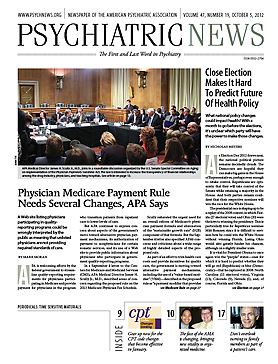As Election Day 2012 draws near, the national political picture remains decidedly cloudy. The Democrats are hopeful they can make big gains in the House of Representatives, perhaps even enough to retake control. Republicans are optimistic that they will take control of the Senate while retaining a majority in the House. And both parties remain confident that their respective nominee will win the race for the White House.
The presidential race is shaping up to be a replay of the 2008 contest, in which Florida (27 electoral votes) and Ohio (20) were the keys to winning the presidency. This is particularly true for Republican nominee Mitt Romney, since it is difficult to envision how he could win the White House without winning Florida. Losing Ohio would also greatly hinder his chances, although on a slightly smaller scale.
It is vital for President Obama to once again win the “purple” states—ones for which it is hard to predict whether they will go red (Republican) or blue (Democratic)—that he captured in 2008: North Carolina (15 electoral votes), Virginia (13), Colorado (9), Nevada (5), and, of course, Florida and Ohio.
Never has health care played such an important role in a presidential election. The country remains deeply divided over the merits of the president’s landmark health care reform legislation, the Affordable Care Act. Republicans are adamantly opposed to it. House Republican leaders have held more than 30 votes to repeal the law in whole or in part, Republican governors led legal challenges that went all the way to the Supreme Court, and some are likewise refusing to expand their Medicaid programs to take advantage of one of the law’s key features: the 100 percent federal funding for the first three years of the program.
While Romney had vowed to repeal the legislation on Day 1 of his presidency (which in any event he could not do because of the law’s complex implementation schedule), he has since stated that there are portions of the law he would in fact keep in his as-yet undisclosed replacement plan.
Meanwhile, Obama touts the legislation as his crowning domestic achievement, and congressional Democrats seem to be less shy about advertising the many benefits of the law in their own election contests. Indeed, post-convention polling shows that Romney received no positive “bounce” after his formal nomination, while the president benefited from as much as a five-point positive surge in the polls.
With respect to Congress, after building a seemingly insurmountable advantage in the House with sweeping victories across the country in the 2010 midterm elections, Republicans are having to work hard to ensure they maintain control of the chamber after the 2012 elections.
While the Democrats are poised to make gains in the House in November, it is likely that they will fall short of the 25 seats they need to regain the gavel. To do so, they would have to win every one of the seats currently rated by observers as toss-ups while pulling a few upset victories in other races.
The picture is much murkier in the Senate now than it was early in the year. At the beginning of the election cycle, Republicans were poised to win at least enough seats to get the 51 needed for a new Republican majority. Democrats held 23 of the 33 seats up for reelection, and the simple math appeared to favor the GOP.
However, a number of developments since then have hampered their efforts. Sen. Olympia Snowe’s (R-Maine) retirement announcement moved what had been a sure GOP seat into the toss-up/leans Democratic categories, forcing Republicans to divert resources to Maine. In Missouri, the controverisal remarks of Republican Representative and Senate nominee Todd Akin about “legitimate rape” have led the Senate GOP leadership to abandon support, moving the seat out of what appeared to be a likely switch from beleaguered incumbent Democrat Sen. Claire McCaskill. While it is still possible that the Republicans could take over the Senate, their path now runs through close contests in Virginia and Nevada that will likely go down to the wire, with a number of other states having races that are too close to call at this point.
With the elections fast approaching, the 2012 political landscape is still developing, and there are more questions than answers. For example, will the Democrats succeed in their efforts to turn vice-presidential nominee Rep. Paul Ryan into a major political liability due to his fuzzy budget math and proposals to make draconian reductions in federal programs such as Medicaid? Or will Romney’s touting of his business experience persuade undecided voters to pull the GOP lever on election day?
While November 6 is just around the corner, the remaining time can be an eternity in campaign politics. Gaffes will be made, economic numbers will fluctuate (and be spun by all campaigns), and world events could turn everything upside down.
Despite polls, prognostications, and pundits’ predictions, one thing appears certain: we will not know the full picture until Wednesday, November 7—at the earliest.

Scott Barnes is deputy director for political affairs and grassroots and director of APAPAC, and Nicholas Meyers is director of APA’s Department of Government Relations.
